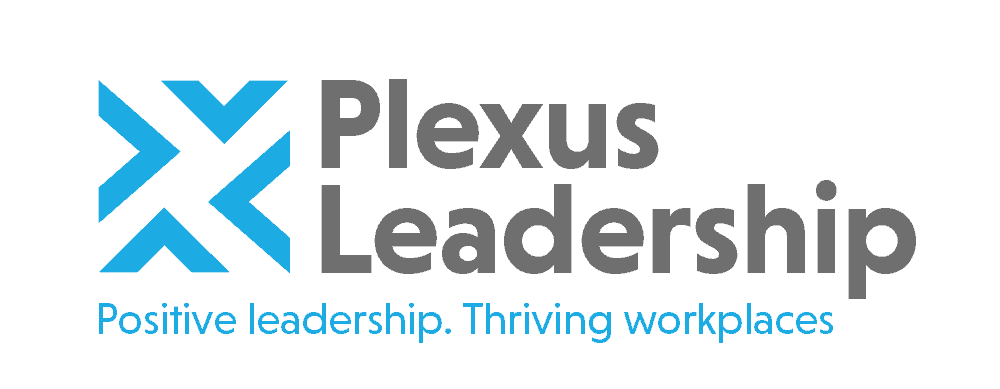Part 1: Effective crisis leadership practices
The COVID-19 crisis is an enormously challenging and novel situation for leaders and managers, regardless of the size or nature of their business. There are no established leadership procedures or blueprints to draw on and, in many cases, the impact of the virus is threatening not just jobs and the organization’s business goals, but the very viability and continuity of the business. So how can leaders respond and navigate effectively through this crisis? Here are some tips based on research and experiences from experts in crisis leadership, as well as our own work with client organizations during pervious crises, including the 2007-8 global financial crisis.
Assign key roles leveraging team strengths
Every crisis needs a strong and decisive leadership team, not just a single leader. This team can be the C-suite, however, to improve the speed of response and clarity of communications, we would recommend a smaller crisis management team. This typically comprises a small number of key leaders (including C-suite executives) who have the skills, expertise and strengths to best manage the crisis. It is important to select people who are decisive, confident, analytically minded, empathic, results-focused and clear communicators to serve on this team. Unclear, indecisive or overly optimistic leaders are not well suited to this role and can do more harm than good. CEOs or team leaders who have low empathy and compassion should be supported by leaders who are strong in these areas, as these qualities are essential in leading through a crisis and recovering strongly.
In addition to establishing a crisis management team, it is important to identify and assemble talented people with vital capabilities in key areas like data analytics, IT, operations, HR, risk management, finance and communications. Assigning people with critical skills to help manage the crisis will ensure the crisis management team has high quality information, expertise and insights, as well as timely support, advice and feedback, to respond effectively. For example, financial analysts and marketing experts can be tasked with providing high quality management information on the likely impact of the virus on the business’s financial health and how best to allocate resources to ensure the fastest possible recovery.
Act decisively, not rashly
Employees, customers, investors and other stakeholders will want to know how a business is responding to the crisis so a swift response is called for based on the best available data leaders have from their own experts, as well as reliable external sources such as the government, World Health Organization, industry and professional bodies, consultants, etc. The data will be incomplete so leaders will need to accept that there will be some trial and error involved at first, before the response plan is iterated and improved. Leaders must avoid being overly rash in responding to the crisis. For example, if they think they may need to downsize their workforce, they should ask their HR and finance teams to first identify different options and run the relevant analyses on these alternatives (e.g., voluntary redundancies, pay freezes, unpaid holidays, etc.) before making a final decision.
Communicate regularly and clearly
Many of the mistakes and problems we have seen so far from political and business leaders since the crisis began boil down to unclear, inaccurate or poorly timed communication. It is crucial for business leaders to align around and control the messages they are putting out to their employees, customers, investors, suppliers, the media and other stakeholders so misunderstandings and mixed messages don’t undermine or dilute the message they are wanting to convey.
Communication needs to be transparent, straightforward and tested from different stakeholder perspectives before it is communicated. The crisis management team needs to ask:
- What key messages do we wish to communicate?
- Who will communicate the messages?
- How will we ensure messages are communicated in a timely, clear and transparent way?
- How might the message be received by different audiences? How will they react? (Think, Feel, Act).
- What questions might arise and how will we respond to them?
It is vital that team members feel they are safe to provide constructive criticism to ensure dishonest, incomplete and inaccurate messages are weeded out or modified. Teams need to be particularly vigilant to avoid “groupthink”, or the tendency of group members to reach irrational or poor decisions to maintain harmony or conform to a dominant opinion.
Some of the key questions that need to be addressed in communications include:
- What is happening?
- Who is taking charge of the response and recovery efforts?
- What does it mean for us? What are the likely implications?
- How will we recover from it?
- What are the main priorities once the restrictions are lifted?
- How can we all help one another through this?
Safeguard employees and regulate distress
If leaders put profit before people and don’t safeguard their employees’ wellbeing during a crisis like this, they are likely to become demotivated and find work elsewhere as soon as they can. As we have seen from press and social media criticism of companies like Sports Direct, reputations of businesses can easily be damaged if leaders are not meeting their obligations to keep employees safe and treating them with decency and empathy during tough times.
Safeguarding goes beyond ensuring the correct health and safety protocols and protective equipment are provided during the crisis. It also means regularly checking in on the wellbeing of staff to see how they are doing. Leaders and managers need to be on the lookout for early warning signs of people suffering unhealthy levels of stress and anxiety so these difficulties can be tackled before they cause severe mental health problems.
In a crisis like this, emotions run high and many people will experience strong feelings in response to rapidly changing events and news. Some people might become particularly stressed and require additional support and reassurance to stay focused and productive. It is important for leaders to listen and empathize with these individuals to understand their anxiety and concerns. Leaders should remind people to focus on what they can control, offer their support and encourage individuals to reach out to others in the team. They should also encourage those most at risk to seek out specialist mental health support from their local GP, EAP counsellors (if the organization has an Employee Assistance Programme) or charities like Samaritans or Mind.
Empower people to remain productive
We’ve all seen the importance of delegating responsibility to frontline NHS staff to care for patients during this crisis. Apart from when workers are furloughed or temporarily laid off, leaders need to similarly trust their staff to do the right thing and continue working productively (even when most are working from home). They should use the crisis as an opportunity to delegate more responsibility to staff while facilitating strong connections and teamwork to keep people motivated and focused during the crisis and subsequent recovery. It is likely that goals and tasks will need to be altered and reprioritized. Therefore, leaders should invite employees’ input into how best they think they can contribute during the crisis and recovery.
Digital communications and project management platforms and apps like Zoom, Slack, Microsoft Teams and WhatsApp should be leveraged to ensure regular communication, support and feedback if employees are working from home. In addition to formal team meetings and one-on-one discussions, leaders can also use online channels for informal check-ins, coffee meetups and socials. This is where leaders can be creative and invite ideas from their team members about how to make online communication more engaging, fun and interactive.
Be ready to adapt quickly
Novel crises, by their very nature, can change quickly. For example, we don’t yet know how long the lockdown will last, how the lifting of the restrictions will be handled by the government, when a treatment and vaccine will be available, or whether there will be a second wave of the virus during the winter months. Therefore, leaders need to remain ready to adapt quickly to this fast-changing situation. They need to ensure they access the best possible information, listen carefully and consult with internal and external experts who can provide good quality information and guidance.
Leaders also need to prepare for the recovery efforts. This involves evaluating and planning how to tackle the financial, employee, customer and any legal implications of the crisis. It also means exploring lessons from the crisis and how to prepare for future crises to mitigate the risks and damage.
A novel crisis of such magnitude can be hugely disruptive and impact an organization for months or even years. However, by building resilience, agility and collective resourcefulness through optimizing the strengths of their people and partners, business leaders can help their organizations recover quicker with their reputation, processes and employee motivation in better shape to deal with the challenges ahead.
Part 2 of this blog series next week will focus on how to support your customers during the crisis.
Other Posts

About the Author
James Brook
Founder and MD | Leadership Consultant | Organizational Psychologist
James is a leadership consultant, organizational psychologist and executive coach. He has over 25 years’ experience working with leaders, teams and organizations globally to optimize their performance, talent and future success. He specializes in positive leadership, thriving workplaces, collaboration and influencing, organizational change and transformation, accelerating innovation and coaching executives and leaders in innovative sectors including Tech, Digital, E-commerce and Life Sciences.
Before setting up Plexus Leadership, James held leadership roles in HR and Talent Management in the UK and abroad with companies such as NatWest, Yahoo! and Novo Nordisk Pharmaceuticals. After this, he founded and led several talent and leadership consulting and assessment businesses, including Strengthscope®, an online strengths assessment and development business serving a wide range of UK and global clients. James grew this venture into a global market leader before selling the business in 2018.
James has supported, advised and coached leaders and teams globally across diverse industries and geographies. Clients he has worked with include Allen & Overy, Commvault, Equinor, Facebook, GSK, Hilton, John Lewis, Novartis Pharmaceuticals, NHS, Oracle, Sainsbury’s, Swiss Re, Tesco, Takeda Pharmaceuticals, WSP and Yahoo!.
James has a Master’s in Organizational Psychology, an MBA, an Advanced Diploma in Executive Coaching and a Harvard Business qualification in Sustainable Business Strategy. He is a member of the Institute of Directors, the Association of Business Psychologists and a Fellow of the Chartered Institute of Personnel and Development (FCIPD). He is currently undertaking a PhD in Organizational Psychology examining the start-up experiences of Tech and Digital entrepreneurs.
James is a regular contributor and speaker on leadership, coaching, innovative talent management and the future of work. His most recent book, Optimize Your Strengths, explores how leaders can create thriving workplaces by inspiring and supporting people to optimize their potential and teamwork to deliver breakthrough results.





